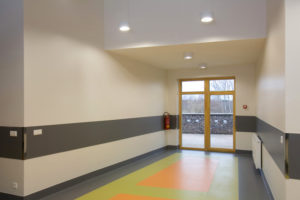Nursing Home Synonyms and Alternative Names
May 18, 2022 | Nursing Home Negligence
Life expectancy has increased with advances in medical care. While it is great to have our loved ones with us for longer, there comes a time when our elderly loved ones require more care and support that we are able to provide them at home. Decreased mobility and the occurrence of degenerative diseases means that these people require round the clock care. They require assistance with their day to day activities. Long term care facilities are specialized in providing this type of care.
Different types of long term care facilities
When people think of long term care facilities that can provide their elderly loved ones with round-the-clock care, they often think of nursing homes. However, there are different types of long-term care facilities. The following terms are often used synonymously with nursing homes. However, they have distinct differences.
- Nursing homes
These are facilities that provide a wide range of personal and health care services. These facilities emphasize medical care. The facilities therefore hire healthcare professionals to meet the medical needs of their residents.
Nursing homes typically provide three meals a day, 24 hour supervision and assistance with day to day activities. They may also provide rehabilitative services such as occupational, physical or speech therapy. Nursing homes may provide short time care for people requiring medical care after being in a hospital. However, many of the residents of nursing homes live there permanently. This is because these people often have mental or physical conditions that require constant supervision and care.
- Assisted living facilities
These facilities provide different levels of care for residents. However, unlike nursing homes, these facilities emphasize providing assistance and supervision with day to day activities. They may also provide services for medical care including help administering medications or with attending medical appointments.
Residents in assisted living facilities often live in their own rooms or apartment. They share common areas such as dining areas or game rooms where they can engage with other residents of the facility. These facilities provide a home-away-from-home atmosphere for residents while ensuring 24-hour supervision and assistance with personal care and housekeeping. These facilities have on-site staff and offer residents recreational and social activities.
- Board and care homes
These are group homes or residential facilities. Residents may live in their own private room or share their room with another resident. Like with assisted living facilities, residents are under 24 hour supervision. Nursing and medical care often isn’t provided on site. Residents may be transported to nearby medical facilities or medical staff may visit the facility for appointments.
These facilities are often much smaller than assisted living facilities. They may have 20 or less residents. Residents are provided with staff who meet their personal care needs as well as provide them with meals.
- Continuing Care Retirement Communities (CCRCs)
CCRCs are also known as life care communities. These facilities offer different levels of service to residents. The living arrangements vary depending on the type of CCRC you have chosen. Many of these facilities offer independent housing. Residents may therefore live in their own apartments or even have an entire house to themselves within a large campus.
CCRCs also offer assisted living services and have skilled nursing care on site. These facilities provide healthcare services as well as access to recreational activities. These facilities are designed for the elderly members of community that are still able to care for themselves but would like to live in a community with other people within their age group. They are also often referred to as retirement communities.
Nursing Home Claims
Whether you choose a nursing home, assisted living facility or CCRC, these facilities are all required to meet the basic needs of their residents. The facility also commits to meeting a certain standard of care as outlined in the contract they sign with them. However, not all facilities meet the requirements of the law or their contract. When this happens, your loved one may become the victim of negligence or abuse. If this occurs, you may be able to recover damages and seek justice for your loved one.
It is important to seek the assistance of an experienced attorney. An attorney will review your case and determine whether you have a valid claim. They will investigate the incident and gather the required evidence to build a strong case on your behalf. They will also advise you on the best strategy to take to maximize your compensation.
Our attorneys are experienced in representing victims of nursing home abuse or neglect. We will represent you in negotiations and take your case all the way to trial if need be. Our attorneys will fight to ensure that you receive just compensation for the injuries suffered. We will fight to ensure that those that caused harm to your loved one are held accountable for their actions.

Nursing Home Synonyms and Alternative Names

